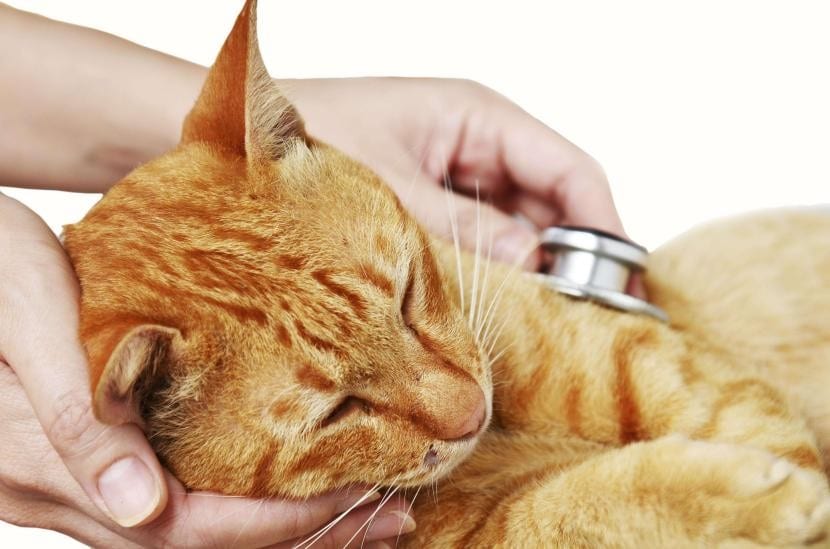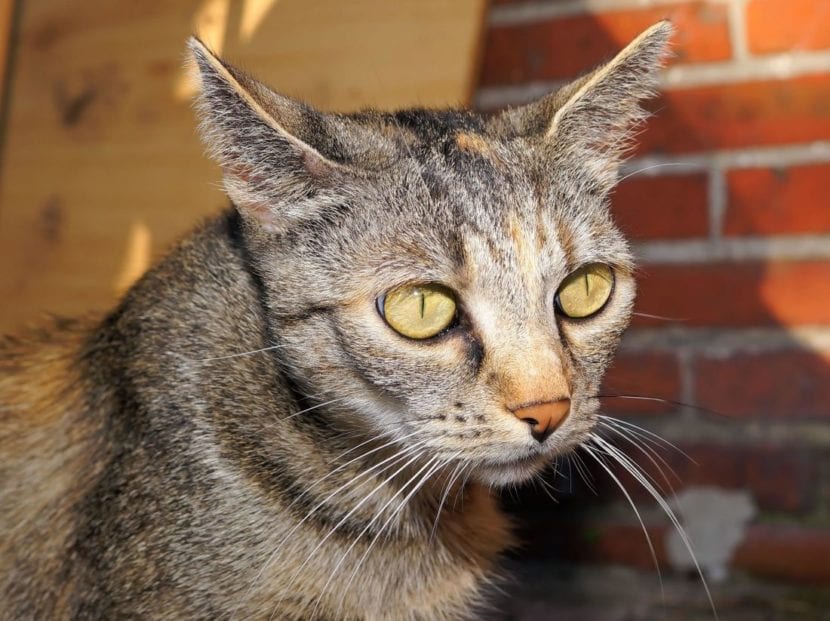
When our beloved cat gets older, his body no longer works as well as it used to. Little by little we will see small details that will make us suspect that old age has already reached him, one of the most worrying symptoms being weight loss for no apparent reason.
Although it is normal for muscle mass to decrease with age, it is not so much the hyperthyroidism in cats. This is a very serious disease, which must be treated by a professional, otherwise the consequences would be fatal for the animal.
What is it?
Hyperthyroidism is an endocrine disease caused by increased production of thyroid hormones by the gland thyroid, which is located in the neck. These hormones are responsible for regulating many body processes, but when they are produced in excess, cats have serious problems such as weight loss despite increasing food intake.
What are the causes?
It is caused by the thyroid gland growth, but you cannot tell why it increases in size. In 2% of cases it is due to the appearance of a malignant tumor, but stress must not be ruled out either.
What are the symptoms?
The most frequent symptoms of hyperthyroidism in cats are:
- Weight loss
- Increased appetite
- Drink more water than normal (in dishes, taps ...)
- Hair loses shine and health
- He goes much more to the sandbox to urinate
- Behavioral changes: may have a lot of energy or, conversely, be more off
- Depression
- Stress
- Trouble breathing
- Vomiting
- Diarrhea
- Irritability
How is it treated?
If we suspect that the cat is sick we should take it to the vet as soon as possible. Once there they will do a complete blood test to be able to find the diagnosis. In the event that the diagnosis is confirmed, depending on the feline's health status, it will choose:
- Send drugs that regulate the production of thyroid hormones.
- Remove your thyroid gland in a simple surgical procedure.
- Or give it a treat with radioiodine.

Hope it has fit. 🙂
Good article, not recently I had read an article about the thyroid gland and its relationship with hair loss in cats, this article complements it. I believe that in addition to hyperthyroidism, hypothyroidism causes problems in the cat as it is a state of hypofunction of the thyroid that can be due to different causes and that causes an insufficient amount of thyroid hormones.